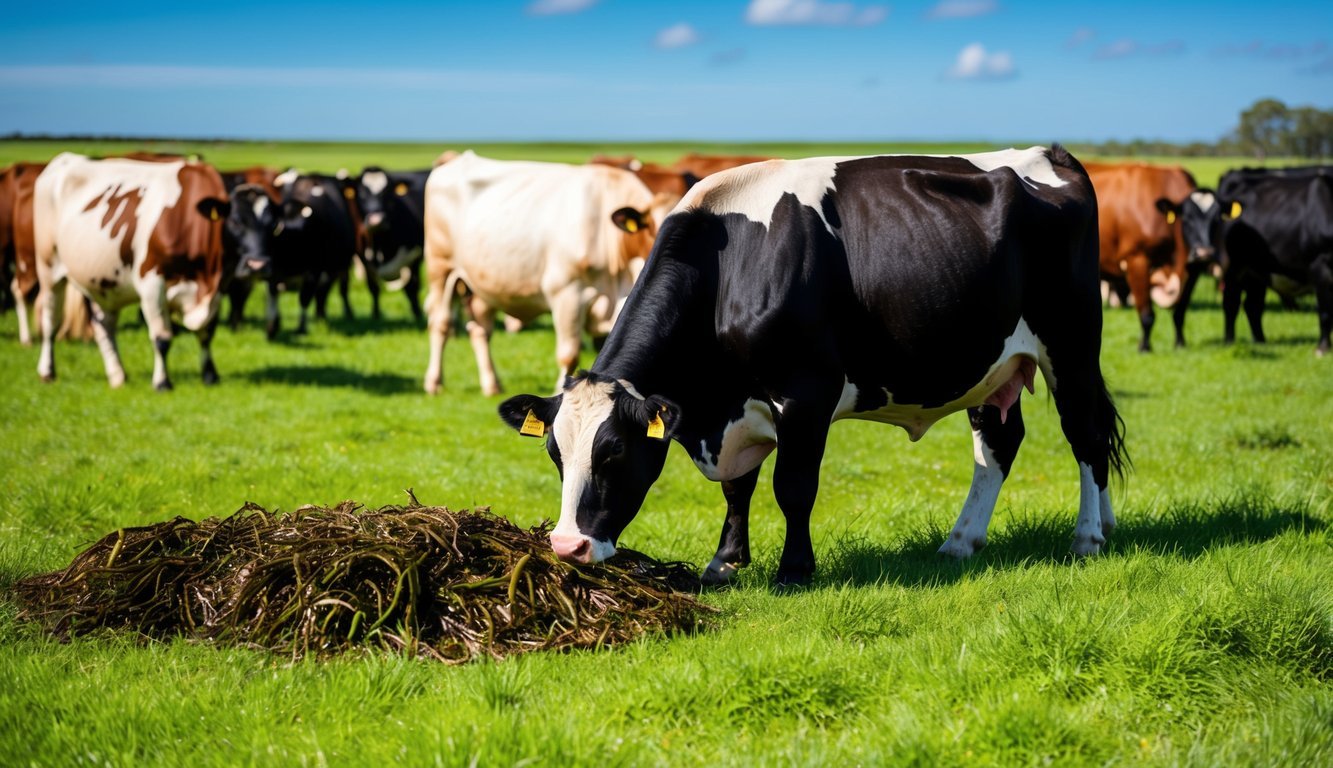
A groundbreaking study from the University of California, Davis, sheds light on the role that seaweed could play in making cattle farming more sustainable.
Published in the Proceedings of the National Academy of Sciences, the research shows that adding a seaweed-based pellet to the diet of pasture-raised beef cattle can cut methane emissions by nearly 40%.
Impressively, this reduction occurs without compromising the health or weight of the animals.
Impact on Grazing Beef Cattle
What makes this research particularly notable is its focus on grazing beef cattle, a relatively unexplored area compared to previous studies.
Earlier research indicated that seaweed could reduce methane emissions by up to 82% in feedlot scenarios and by more than 50% in dairy cows, but this marks the first significant study for cattle out in the fields.
Livestock are responsible for around 14.5% of global greenhouse gas emissions, with cattle being the largest contributors of methane.
This is especially true for grazing cattle; their high-fiber grass diet leads to higher emissions compared to their feedlot and dairy counterparts.
In the U.S. alone, there are over 64 million beef cattle and approximately 9 million dairy cows.
Research Methodology
Professor Ermias Kebreab, a senior author and member of the Department of Animal Science, underscores the urgency of addressing these emissions, considering that beef cattle spend most of their lives grazing rather than confined to feedlots.
He stressed the importance of making seaweed or similar feed additives easy to access for grazing cattle, as it could greatly improve the sustainability of cattle farming amid increasing meat consumption demands.
One of the challenges facing pasture-raised cattle is the logistics of feeding them, since they often graze far from ranches for extended periods.
Nevertheless, ranchers usually adjust their cattle’s diets during winter or when grass becomes scarce, implementing supplements to keep their herds healthy.
In the study, researchers observed 24 beef steers from Angus and Wagyu breeds.
They divided the steers into two groups: one received the seaweed supplement, while the other did not.
Conducted over ten weeks at a ranch in Dillon, Montana, this experiment allowed the cattle to consume the supplement voluntarily, resulting in a notable drop in methane emissions.
Broader Implications
While most previous studies focused on reducing methane through daily feed supplements in controlled environments, Kebreab noted that such methods often fall short for grazing cattle.
This study introduces a more viable approach for delivering seaweed to these animals, suggesting the use of lick blocks that ranchers could provide for easier consumption.
Kebreab also pointed out the importance of pastoral farming, which sustains millions of households around the world, especially in regions vulnerable to climate change.
The findings offer not only a way to make cattle grazing more environmentally friendly but also contribute to broader efforts in combating climate change.
An accompanying article in the same journal issue emphasizes the need for greater production efficiency in livestock systems, especially in low- and middle-income countries.
Alison Van Eenennaam, a Professor and Cooperative Extension Specialist at UC Davis, discusses how improved genetics, better feeding practices, and enhanced health management can help meet global meat demand while decreasing greenhouse gas emissions.
This holistic approach could pave the way for a sustainable future in livestock farming.
Source: Science Daily

